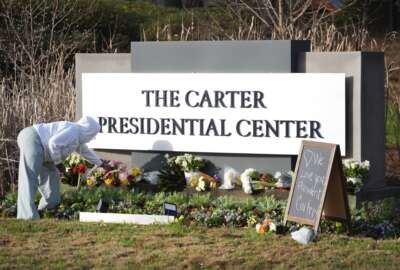Court agrees to rehear lethal injection case in win for Ohio
A federal appeals court has agreed to re-examine Ohio's new and twice-rejected lethal injection process as the state struggles to resume executions
COLUMBUS, Ohio (AP) — The state on Tuesday won a round in its efforts to restart executions in Ohio, though in the short term a court’s ruling will likely delay efforts to put a condemned child killer to death.
At issue are arguments about Ohio’s proposed use in executions of a contested sedative called midazolam and a debate over what a previous U.S. Supreme Court ruling said about the constitutionality of the drug.
In January, federal Magistrate Judge Michael Merz said the state’s three-drug protocol, beginning with midazolam, “creates a substantial risk of serious harm.”
Earlier this month, a three-judge panel of the 6th U.S. Circuit Court of Appeals in Cincinnati agreed with the judge and kept his order against the execution process in place.
The state appealed, asking the full 6th Circuit to rehear the case in the hopes it would come to a different conclusion. On Tuesday, the court agreed and set arguments for June 14. The court lists 14 full-time judges and several senior judges.
Ohio argues that the U.S. Supreme Court upheld the use of midazolam in 2015 in a case out of Oklahoma.
The appeals court ruling means at least two executions are now uncertain. On May 10, the prisons agency is set to put Ronald Phillips to death for raping and killing the 3-year-old daughter of his girlfriend in Akron in 1993.
Phillips’ execution has been delayed multiple times over the years.
On June 13, the day before the appeals court arguments, Ohio plans to execute Gary Otte for shooting two people to death in back-to-back robberies over two days in Parma, in suburban Cleveland, in 1992.
Republican Gov. John Kasich’s office said it was trying to determine the impact of the ruling on the executions. The Department of Rehabilitation and Correction was also reviewing the decision.
The agency “remains committed to carrying out court-ordered executions in a lawful and humane manner,” said spokeswoman JoEllen Smith.
Lawyers challenging Ohio’s execution process said they believe the full appeals court will also be convinced that the state’s current method is unconstitutional.
Executions have been on hold since January 2014, when inmate Dennis McGuire took 26 minutes to die under a never-before-tried two-drug method that began with midazolam. The same drug was involved in a problematic execution later that year in Arizona.
___
Andrew Welsh-Huggins can be reached on Twitter at https://twitter.com/awhcolumbus. His work can be found at http://bigstory.ap.org/content/andrew-welsh-huggins
Copyright © 2025 Federal News Network. All rights reserved. This website is not intended for users located within the European Economic Area.





